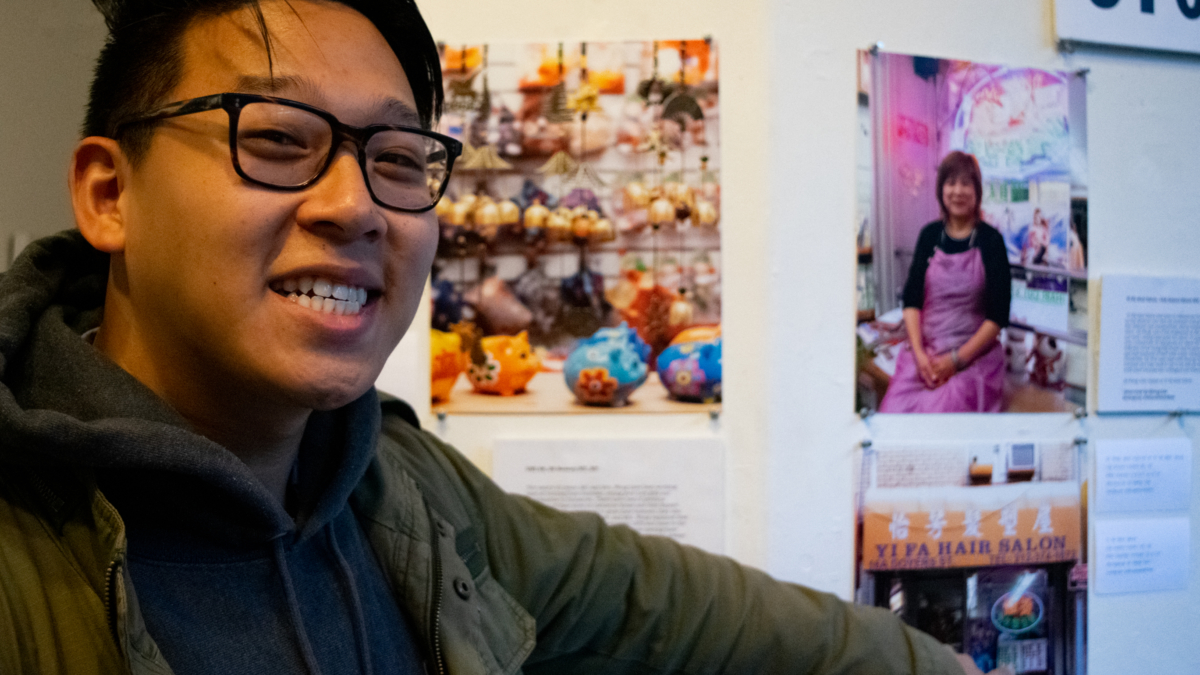Written By: Demi Guo
“Another one,” the frowny face seemed to say. Chinatown Vibes’ Instagram story featured yet one more neighborhood business closed down for good.
Sheng Lin spent much of his early life in Chinatown. It felt only right to document it.
“It just started to feel like every time I went to Chinatown, another store was closing,” he said. “Chinatown’s landscape was literally changing.”
His exhibition hung in the Theater for the New City Gallery for two months, as part of the “Capturing Mom-and-Pop Storefronts” gallery. The latter is in fact its own initiative, with its own Instagram account, holding in each frame every fading façade in New York City.
“I’m just in that little corner,” he said modestly. The walls were whitewashed, the photographs printed on matte paper. This was Chinatown Vibes’ first exhibition.
His camera is not even anything fancy. It is a NIKON D3300 with a mid-range zoom lens. He takes photos like this:
And then he uses them to tell stories like this:
“Wind chimes and piggy banks!” is what is inside UNI 28 on 28 Bowery. The owners, Mr. and Mrs. Wong, left the refugee camps in 1975 and came to New York by boat. The store has stood for 40 years.
They still travel back to Asia twice a year to find the newest and hottest items, which is why they were wary when Lin arrived with a camera in their store. Still, they told him their story, and he came away with this one precious photograph of flower-painted pigs and wind chimes.
“It’s important to showcase that Chinatown is a place where real people live,” he said.
Growing up, he went to Chinatown’s Florentine School for math and English classes on Saturday, and Chinese classes at New York Chinese School. This is a common experience for Chinese Americans. “My weekends were nonexistent,” he said, “but it was a great opportunity to eat out every weekend!”
He has covered businesses like Noodle Village for his account, featuring oxtail soup and the anatomy of noodles (boiled instead of stir-fried, made with duck egg for a springy texture).
“I would come in,” he said, “talk to them about featuring their business, and just have a conversation with them about what it means to have their business in a place like Chinatown.”
One of his recommendations is XO Kitchen. “I have not had a dish that has disappointed!” he said. “For winter weather soup cravings, the shrimp wonton noodle soup at Noodletown is definitely going to hit the spot!”
The exhibition ended in October, and it was Lin’s first collaboration. He continues to run the account with his mission still in mind.
“It seems like Chinatown is becoming more of a tourist attraction and a home to those with more wealth. Low income residents are being pushed out and a community is being displaced,” he said.
The business featured on Chinatown Vibes’ Instagram story is Baishi Hair Salon. The gate is down, and a sign left on it says that they were in business for 37 years.
It was the second salon that he noticed had closed on the narrow alley on Doyers Street.
“I fear that in the future Chinatown will only be a skeleton of what it use to be,” he said.
You can follow Chinatown Vibes @chinatownvibes on Instagram.

